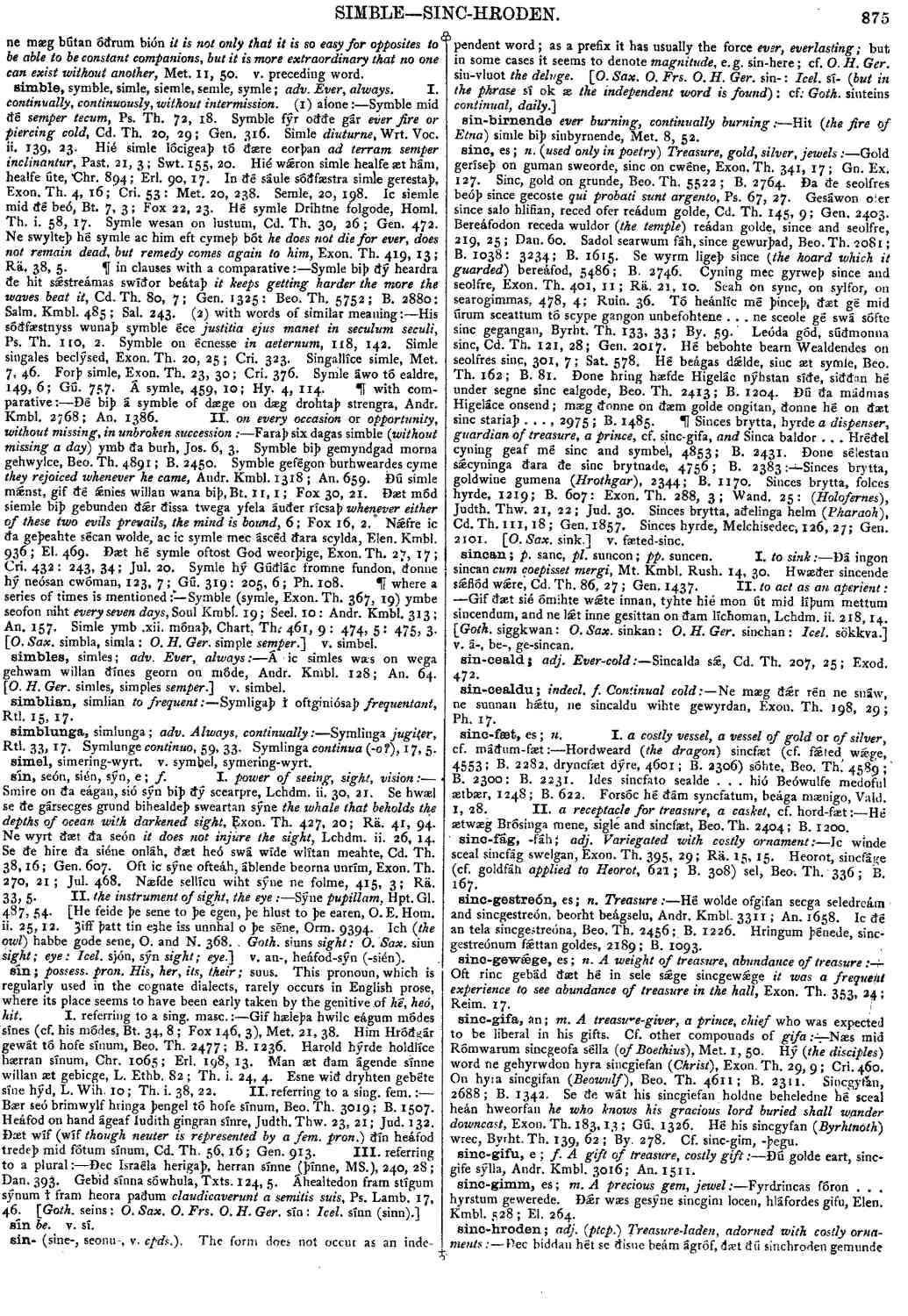sín
- adjective
- pronoun
-
Gif hæleþa hwilc eágum módes sínes (cf. his módes,
- Bt. 34, 8 ; Fox 146, 3), Met. 21, 38.
-
Him Hróðgár gewát tó hofe sínum,
- Beo. Th. 2477 ; B. 1236.
-
Harold hýrde holdlíce hærran sínum,
- Chr. 1065 ; Erl. 198, 13.
-
Man æt ðam ágende sínne willan æt gebicge,
- L. Ethb. 82 ; Th. i. 24, 4.
-
Esne wið dryhten gebéte síne hýd,
- L. Wih. 10 ; Th. i. 38, 22.
-
Bær seó brimwylf hringa þengel tó hofe sínum,
- Beo. Th. 3019 ; B. 1507.
-
Heáfod on hand ágeaf ludith gingran sínre,
- Judth. Thw. 23, 21 ; Jud. 132.
-
Ðæt wíf (wíf
though neuter is represented by a fem. pron.
) ðín heáfod tredeþ mid fótum sínum,- Cd. Th. 56, 16 ; Gen. 913.
-
Ðec Israéla herigaþ, herran sínne (þínne,
- MS.), 240, 28 ; Dan. 393.
-
Gebid sínna sówhula,
- Txts. 124, 5.
-
Áhealtedon fram stígum sýnum ł fram heora paðum
claudicaverunt a semitis suis,
- Ps. Lamb. 17, 46.
- [Goth. seins : O. Sax. O. Frs. O. H. Ger. sín : Icel. sínn (sinn).]
Bosworth, Joseph. “sín.” In An Anglo-Saxon Dictionary Online, edited by Thomas Northcote Toller, Christ Sean, and Ondřej Tichy. Prague: Faculty of Arts, Charles University, 2014. https://bosworthtoller.com/27769.
Checked: 0